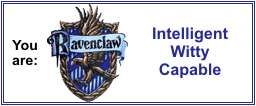The Koran - 50 Greatest Books
I am posting the entire article today - mainly because the Koran is such a topical book amidst all of the political and economical events happening in the world today.
How do you measure a book's worth? By its sale in millions, by its perennial appeal to generation upon generation, by the beauty of its language and style or because, as in the case of the Koran, the book is considered sacred and venerated as God's very word. With more than one billion Muslims in the world who believe that the Koran is God's last revelation in human history, the Koran, like the Bible, is one of the most widely read, revered and recited books in the world. Its reach is global, its influence is global. It has been the inspiration to one of the greatest civilizations in the world and is the basis for some of the most impressive art, architecture, literature, philosophy and science the world has ever known.
A relatively short scripture, the Koran is the culmination of a series of revelations that Muslims believe were given to Muhammad, a seventh-century Arab who became God's last Prophet and the recipient of God's final revelation. The book was revealed in Arabic and subsequently compiled in Arabic. Though it has been translated into numerous languages, the faithful nevertheless always try to read the original Arabic because the power of the book lies as much in the oral recitation of the verses as its does in its content. For Muslims, the Koran is central to the good and moral life.
Like most Semitic scriptures, the Koran refers to the big themes: God, prophecy, angels, the eschaton (the end of days), punishment and reward. But it also refers to people of other faiths, namely Jews and Christians. These are people who also received divine revelation, who had their own prophets and who might also be saved in the next world. Thus, Muslims have always shared an ambivalent history with the people of both these faiths.
The Koran also refers to what are understood to be more socio-ethical matters: marriage, divorce, sexual relations, slavery, inheritance laws, poverty, penal laws, ecology and ritual practice. Man worships God not just through submission to ritual but through the ethical relations he forms with the world and people around him.
This is where the greatness of the Koran lies. With its insistence on reflection on God's world and its emphasis on the performance of just and charitable acts, the Koran contains a transformative power. The language is poetic, passionate and persuasive. The narrative is both long and elaborate, and short and choppy. The thread that ties all the different themes together is God' mercy, or rahma. The Koran is itself a reflection of God's mercy and compassion, and must be central to the way we think of one another and the relationships we form.
But like all scriptures, the Koran contains another side. In the post-9/11 world, many in the West are suddenly awake to the power of scripture, and to the fact that zealotry and fanaticism can find their roots in scripture just as much as compassion can. Issues of gender inequalities and a justification for violence are being seen as defining descriptors of the Islamic world with their basis in the Koran.
While academic and popular thinking contest or defend these issues, in so doing they keep the Koran alive. Like every great book, the Koran inspires and confuses, it moves and infuriates, it speaks and demands that we listen. Its Arabian setting, its tales of prophets and messengers, its promise of heaven and its threats of hell all mean that in one page we live multiple existences; we live both in the past and the present and we reflect on our mortality. Philosophy, theology and poetry are all sealed intricately in the book.
This is not an easy book to read, but sacred territory is never easy. The Koran has continued to inspire the faithful for hundreds of years, and it continues to shape the lives of millions from birth to death. The Koran may look like any other book, but for the believer, it is quite simply a call to God.
Mona Siddiqui is the University of Glasgow's professor of Islamic Studies and Public Understanding, as well as the director of its Centre for the Study of Islam.
Quotable
It is Allah who causes the seed-grain and the date-stone to sprout. He causes the living to come forth from the dead and He is the one to cause the dead to come forth from the living. That is Allah, so then how are you deluded from the truth? It is He that breaks the day and makes the night for rest and the sun and moon for the reckoning. Such is His judgment, the Exalted in power and the Omniscient. It is He who makes the stars for you so that you may guide yourselves with their help through the dark spaces of land and sea. Indeed we detail our signs for people who know. It is He who produced you from a single soul and then a resting place and a repository. We detail our signs for people who understand. It is He who sends down rain from the skies.
Chapter 5 verses 95-99,
The Chapter of the Cattle
I personally do not accept the Koran as the Word of God - but then I do not accept the Bible as the Word of God either. Does that means I'm neutral?
Saturday, June 21, 2008
Subscribe to:
Post Comments (Atom)









No comments:
Post a Comment